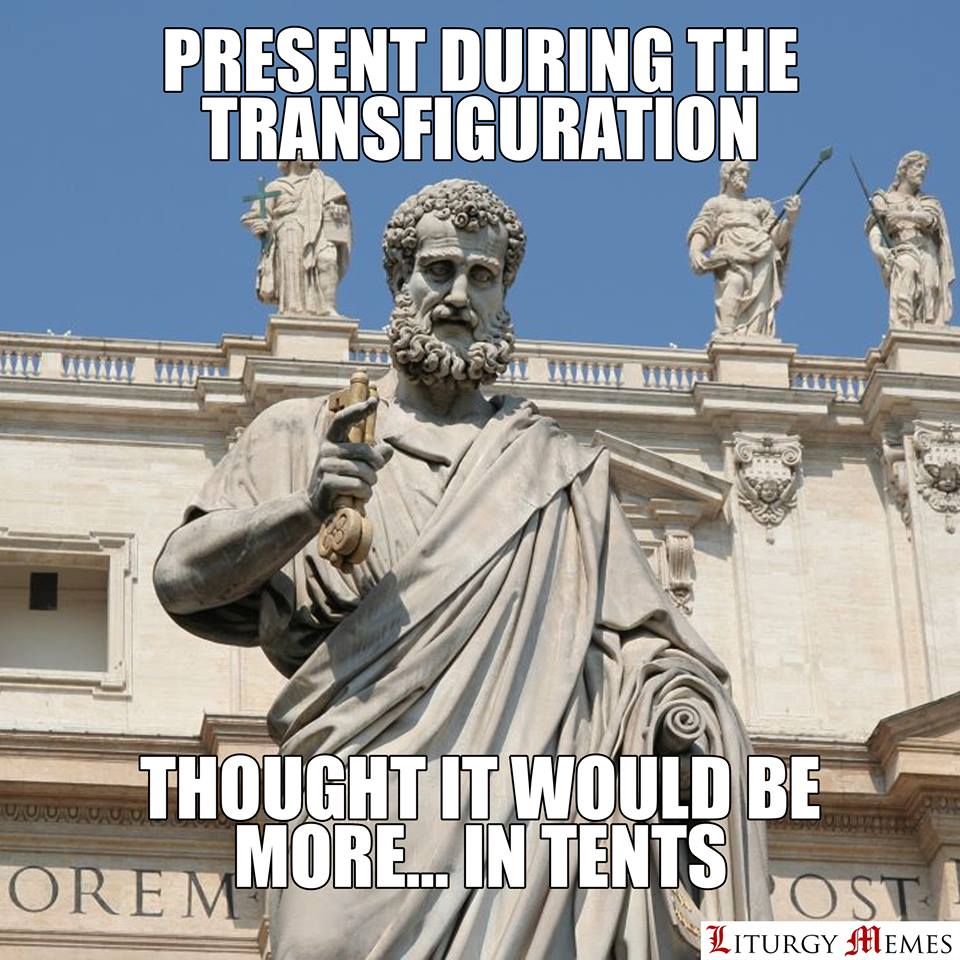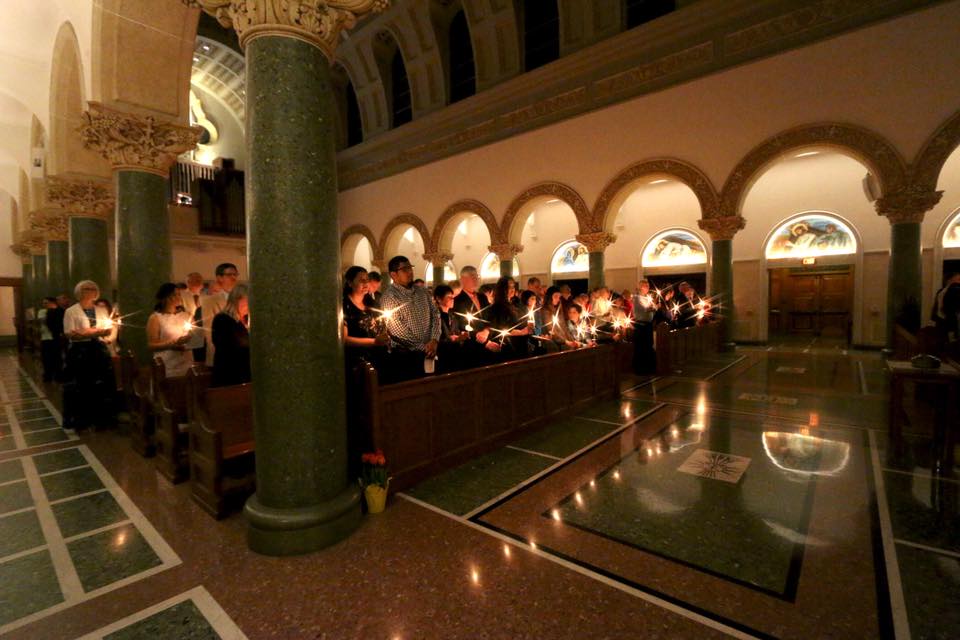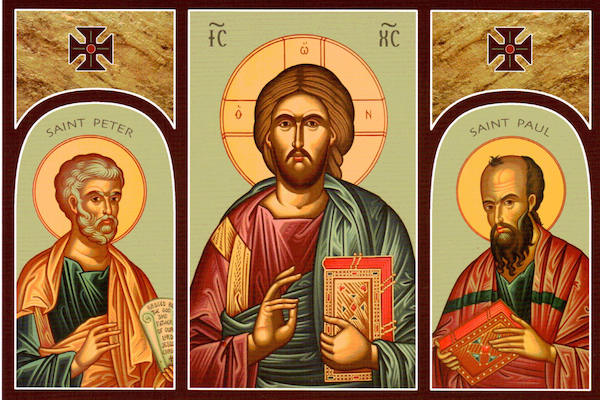Friday Frivolity: The Transfiguration wasn’t what I expected

"We are travellers…not yet in our native land" – St. Augustine


Just before Easter, I posted an article written by one of my friends on her one-year anniversary entering the Catholic Church. Now that we reach the end of the Easter Octave, here is another article which she wrote shortly before entering back in 2017…

As the Easter season quickly approaches and thousands of adults around the world prepare for the Sacraments of Initiation (Baptism, Confirmation and First Holy Communion), I thought it would be an appropriate time to explain why a person converts to the Catholic Church.
Of course, with hundreds of faith traditions and spiritual experiences, there could be hundreds of reasons, but I want to give you the top seven reasons why I left my life-long Protestant faith to become a member of the One, Holy, Catholic and Apostolic Church (although that may describe it right there ☺).
1. Silence
I list this reason first because it was one of the first aspects of the Church that drew me in. When I refer to silence, I simultaneously refer to the feeling of peace within a soul. We live in a chaotic world, a world of incessant noise, a world pulling us in so many directions we sometimes don’t know which way is up. These noises and distractions make our souls crazy; our souls are crying out for inner peace, to just slow down and let God fill us in the silence.
When I first began attending Mass about two years ago, this phrase jumped out at me again and again, “Jesus said to his disciples, My peace I leave with you; My peace I give you.” How our souls yearn for this peace! Imagine how different our lives would be if we consistently let God give us His peace. One of the ways Catholics allow Christ to do this is in adoration. To kneel before the Blessed Sacrament and simply allow the silence to infiltrate our whole being is such an incredible gift; to allow the noises and distractions of the world fade away as we worship God in the quiet stillness of the Church. It feeds our hungry souls. And amongst our busy lives, God reminds us: “The Lord will fight for you; you have only to be still.” (Exodus 14:14)
I think St. Augustine perfectly described our yearning for the peace of God when he said, “Thou hast made us for thyself, O Lord, and our heart is restless until it finds rest in thee.”
A while back at an Eastern Orthodox event I had mentioned in passing at least one Church Father asserted that the “Cephas” mentioned in Galatians wasn’t the Apostle Peter. In the link below, Dr. Barber explains why he thinks that the “Cephas” of Galatians and the Apostle Peter are the same person:
…and his followup.
Today is the feast day of St. Peter and St. Paul, two of the great pillars of the Church:

This morning at the Byzantine liturgy I was struck by how the themes of patience and perseverance came up again and again in the Liturgy of the Word. The Apostolic Reading (roughly equivalent to the Second Reading in the Roman Mass) even contained my life verse where St. Paul talks about how the grace of God operates through our weakness 🙂
If I had been the one to choose the Readings today I would have probably chosen other readings, so during the Liturgy I pondered why the Church chose those particular passages…
In part, I think it might be due to the fact that Peter and Paul were not only great leaders of the Church, but they were also martyrs, enduring suffering and offering their lives to God in the most radical way. I think by focussing on the theme of patient endurance the Church is teaching us that we are all called to do the same, to be patient in adversity and to allow the “fertilizer of life” to yield fruit within us (Romans 5:1-5) and to offer our entire lives to the Lord.
At the end of the First Century, Clement of Rome wrote a letter to the Church at Corinth. The Church at Corinth was having difficulties (again). This time they had rebelled against their clergy, so St. Clement wrote to them to resolve the issue. During the course of his letter, he spoke about how envy and jealousy had caused havoc and destruction in the lives of different Old Testament characters. He then turned to, what was for Clement, very recent events:
But not to dwell upon ancient examples, let us come to the most recent spiritual heroes. Let us take the noble examples furnished in our own generation. Through envy and jealousy, the greatest and most righteous pillars of the Church have been persecuted and put to death.
Let us set before our eyes the illustrious apostles. Peter, through unrighteous envy, endured not one or two, but numerous labours and when he had at length suffered martyrdom, departed to the place of glory due to him. Owing to envy, Paul also obtained the reward of patient endurance, after being seven times thrown into captivity, compelled to flee, and stoned. After preaching both in the east and west, he gained the illustrious reputation due to his faith, having taught righteousness to the whole world, and come to the extreme limit of the west, and suffered martyrdom under the prefects. Thus was he removed from the world, and went into the holy place, having proved himself a striking example of patience – Pope St. Clement of Rome (c. AD 96)
As you can see, Clement reminds the Corinthians of Peter and Paul, examples of those who patiently endured and, who for their fidelity, won crowns of eternal life.
Since today is the Feast of St. Peter and St. Paul, it is also my Feast Day, since I took the name “Peter” at my Confirmation. I always make a point of celebrating my Feast Day, so I’ll be sure to pick up something delicious for dessert later 🙂
Do you celebrate your feast day? If so, what do you do?


It is often asserted that the Catholic Church was founded by the Constantine, who was Emperor of the Roman Empire from AD 306-337. A couple of weeks ago, a lady named Monica made such an assertion and in earlier post I pointed out some of the problems with such a theory.
However, today I would like to do something a little different… In this post I would like to set forth the positive historical case for the existence of the Catholic Faith in the generations prior to Constantine. I will show how twenty-one different Catholic doctrines were taught long before Constantine rose to power:
I will demonstrate these early Christian belief by looking at primary sources alone and restricting myself to writings produced prior to AD 300.
Read more
For those who come to theological conclusions by putting their finger in the air to test the various options, Jesus gives us an example by first asking the Apostles what others think of him. Notice that all their answers were wrong. How often do we look to the opinion of others rather than seek out His authority for answers? Knowing that the Father would reveal the correct answer, Jesus asks them the most important question, “But who do you say that I am?”
– Jeff Cavins, “I’m not being fed!”
The Readings this Sunday ask a basic question: whom do you choose?
In the First Reading, Joshua asks this question of Israel. Whom will they serve? Yahweh or some other god? In the Gospel Reading, after hearing the “hard teaching” of the Lord about His Body and Blood, Jesus asks the Twelve if they wish to leave along with some of the other disciples. Peter answers the question in the same way I hope we would all answer: “Lord, to whom shall we go? You have the words of eternal life”.
We have a fundamental choice in life. Do we choose God, or do we choose something or someone else? As we hear God’s Word this week and gather around the altar to “taste and see that the Lord is good”, let us renew our commitment to the Lord and say with Peter “We have come to believe and are convinced that you are the Holy One of God”.
